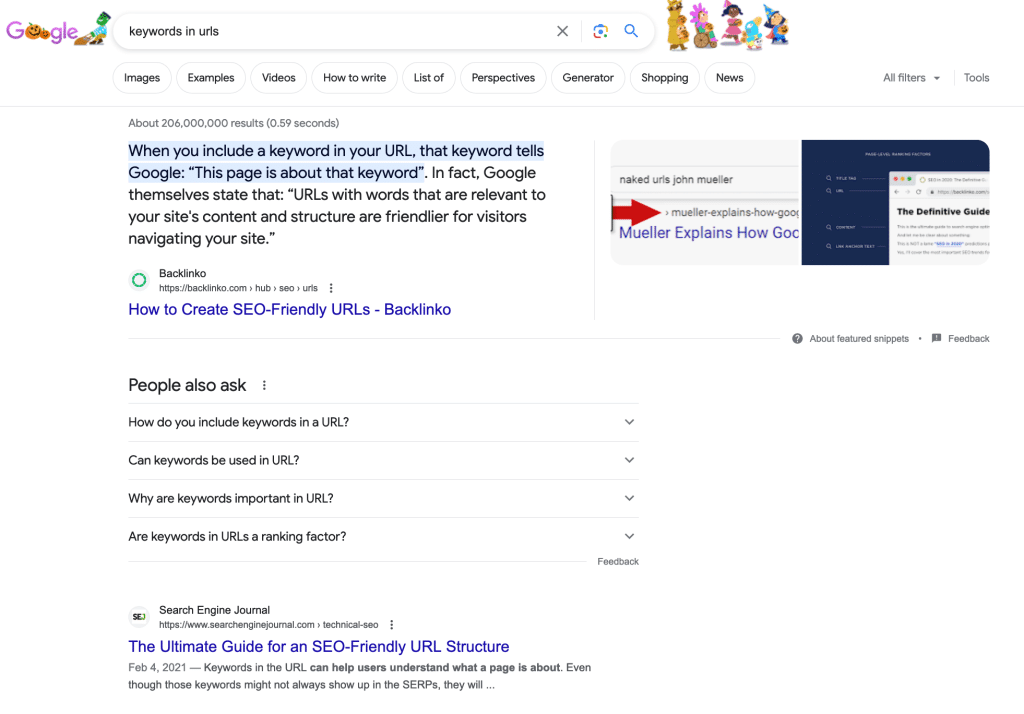
Your keywords are a great tool to reach potential customers, so make them a priority. However, you should do more than just have those keywords in your tags and your text. They should also be found in your URLs. This is a logical step to really get more overall benefits from your SEO efforts. However, this continues to be an area where many website owners are dropping the ball.
Your domain name is a big place to start. Do you have any of your effective keywords in it? This may be difficult to change now if you already have the business up and running. If you aren’t at that point yet, you want to make sure you get a domain name that has powerful keywords in it.
Your Niche Market
Think about your niche market for a moment. By doing so, you will quickly start to see many opportunities you have to put keywords into that domain name. You can also buy a domain name that has such keywords in it and use it for your existing website if you want through redirecting. This can be complex but it is a viable option if you want to take your SEO efforts to the next level.
If you don’t think that keywords in your URLs are important, you need to find out some history about all of it. You also need to find out what the leader in search engines, Google, has to say about it. Until 2005, Google was putting all of the emphasis on the websites that had keywords in their domain name.
That began to change though in 2005 and there were plenty of other elements that the search engine Google was basing ranks on. However, in the past year or so more of the weight has shifted back to the keywords being found in that domain name. With that in mind, doing so could help you to have an edge over your competition when you are parallel to them in so may other SEO elements.
Keywords in Subdomain URLs
You can also place keywords into your sub domains, but it is a bit more complex to accomplish. If your website has enough content to offer a separate segment for sub domains though then you should use them. You can use different keywords too in order to fairly represent different divisions of your business.
It is highly recommended that you place your keywords into the directory too. This allows you to properly categorize the website into plenty of smaller divisions and sections. You want to use keywords for your file names too so that they can be helpful with the process of describing what is on a particular web page.
Google isn’t the only search engine out there that gives more weight to a website when they have keywords in their URL. Make sure you keep things balanced though and that you don’t seem like you are stuffing materials anywhere that could get you banned. Doing it right can help you to get a great ranking placement with the various search engines.
More about Keywords in URLS
In the world of SEO, keywords are akin to gold nuggets, and they can be a game-changer when it comes to reaching potential customers. However, optimizing your website for search engines involves more than merely sprinkling these precious keywords throughout your tags and textual content. You should also ensure they find their way into your URLs, a often overlooked but incredibly valuable aspect of SEO. Here’s why incorporating keywords into your URLs and domain name is pivotal for achieving comprehensive SEO benefits:
- URL Relevance: Including keywords in your URLs makes them more relevant to the content on the respective pages. Search engines rely on this relevance to understand the subject matter of your web pages, making it easier for them to rank your site for relevant search queries.
- User Experience: Clear and concise URLs that contain relevant keywords enhance the user experience. Visitors can quickly gauge what a page is about by glancing at the URL. This transparency can boost their confidence in your content and encourage them to click through to your site.
- Click-Through Rate: Keywords in URLs can have a direct impact on your click-through rate (CTR). When search engine results display URLs with relevant keywords, users are more likely to click on those links, as they appear to be a better match for their search intent.
- Brand Authority: Your domain name plays a significant role in your brand identity. If your domain name contains effective keywords, it not only improves your SEO but also reinforces your brand’s authority in your industry.
- Planning Ahead: If you’re in the early stages of building your online presence, selecting a domain name with powerful keywords is a strategic move. This investment can provide long-term SEO advantages and help potential customers find your website more easily.
It’s important to note that if you already have an established business with an existing domain name, changing it can be a complex and risky endeavor. However, for new ventures or those looking to rebrand, selecting a domain name that incorporates relevant keywords is a proactive approach to securing SEO benefits.
Keywords are a vital tool in your SEO toolkit, and integrating them into your URLs and domain name should not be underestimated. This practice enhances the relevance, user experience, CTR, and brand authority of your website. For businesses at the outset of their online journey, choosing a keyword-rich domain name is a smart investment for long-term SEO success. By paying attention to these often overlooked aspects of SEO, you can strengthen your website’s position in search engine rankings and better connect with potential customers.